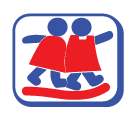3 Ways to Help Your Kids Learn Confidence
You want your kids to learn and grow, which means they will have to try new things. But when certain tasks look like they might get hard, you may notice that your kids want to give up. For example, your kids might decide they don’t want to try to make new friends, stand up to a bully, or try out for their favorite sport because they are scared they may fail.
Your kids need to learn to have confidence in themselves and their abilities. These three tips can help you teach your kids to trust themselves enough to try new things.
1. Praise Effort, Not Results
You may feel that complimenting your children often will help build their confidence. However, praise can be a double-edged sword. If you constantly praise your kids for everything, they can learn to rely on it, which means that if they don’t get glowing feedback, they will feel like failures.
Alternatively, you might only praise your children when they are successful at something, like getting a good grade or making the soccer team. In this case, they might learn that they are only worthwhile when they succeed, even if that’s not the message you intended to send. If your children think they have to succeed to please you, they may be too scared to try anything new.
Use compliments wisely. Instead of giving them out for everything your child does, compliment your child when you can tell he or she tried hard. If you praise your children’s efforts, not the results, your children will learn that trying something is worthwhile and that they don’t need to always succeed to be worthwhile.
For example, if your children are at a competition, you don’t have to comment on whether they win or lose. Instead, you could focus on the effort involved, like saying how great they did on specific skills they’ve been practicing, or on how much you enjoyed watching them compete. Complimenting their efforts will teach them that their hard work matters, even if they fail.
2. Let Them Take Risks
You can’t stop your children from failing at some point. It’s inevitable, and part of confidence is knowing that you can deal with and move on from failure. You have to let your children mess up sometimes.
Next time you see your kid trying to carry too many things, don’t intervene (as long as he or she is safe). If your child drops everything because he or she was carrying too much, your child will better learn the limits of his or her capabilities. Additionally, he or she will learn to clean up the mess and move on, or in other words, your child will learn what to do after a failure.
3. Give Responsibility
Having some sort of responsibility teaches your child that he or she is capable of being in charge. Your children can learn to trust their own abilities more, giving them confidence.
The type of responsibility you give your kids depends on their ages and their abilities. You want to give them chances to grow, but you don’t want to set a goal that they can’t reach yet. For example, a toddler may be ready for the responsibility of making some decisions: you could ask your toddler to pick out his or her own clothes.
Your older children may be ready for more responsibility, like helping their younger siblings, cleaning certain areas of the house, or looking after a pet. You are ultimately the best judge of what your children are ready for. Think about what they can handle, and give them opportunities to take charge and succeed.
If your children struggle with trying new things, they could be afraid of failure. They need to learn confidence. Help by praising efforts instead of results, letting them take risks, and giving them responsibilities.
Daycare or after-school programs can also help your children learn to trust themselves in your absence. If you think your kids could benefit from trying new things away from home, contact Kids’ Country.


